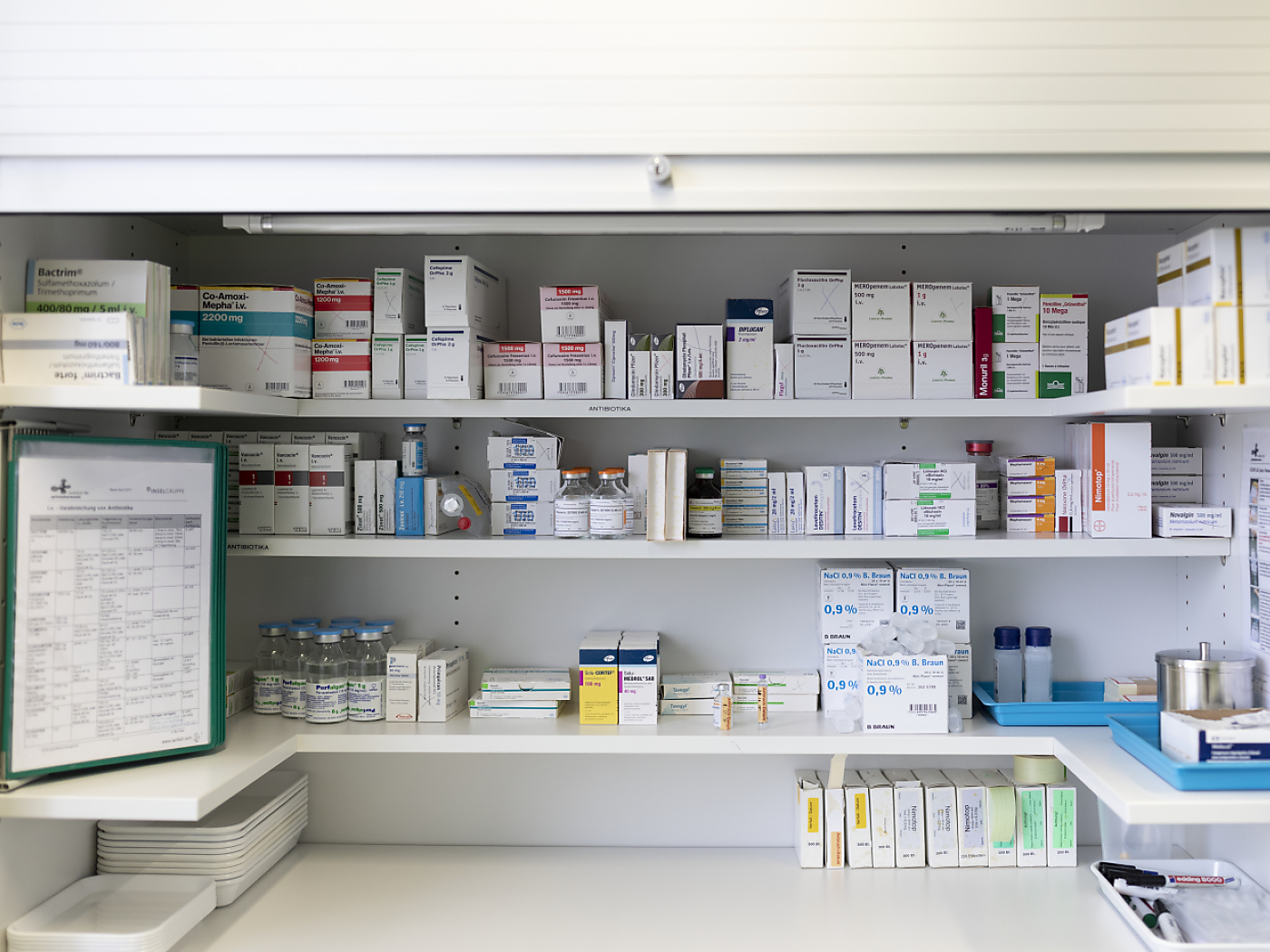
Rise in use of antibiotics in Switzerland

The consumption of antibiotics has risen in Switzerland since the Covid-19 pandemic. However, compared to other European countries the Alpine country has one of the lowest levels of antibiotic usage.
+Get the most important news from Switzerland in your inbox
In human medicine, overall antibiotic consumption rose to 10.8 defined daily doses per 1,000 inhabitants per day in 2023, compared with 8.6 in 2021. Consumption has thus returned to a similar level to 2019 (10.6), according to the Swiss Antibiotic Resistance Report 2024.
+ Swiss antibiotics prescriptions doubled during pandemic
The large wave of respiratory tract infections recorded in winter/spring 2023 probably played a role in this, the report says.
+ Swiss government wants to tackle antibiotic resistance
Since 2014, the use of particularly critical antibiotics has fallen by 26% in 2023. At the same time, the share of less critical products has risen to 66% of total consumption.
Translated from German by DeepL/sb
This news story has been written and carefully fact-checked by an external editorial team. At SWI swissinfo.ch we select the most relevant news for an international audience and use automatic translation tools such as DeepL to translate it into English. Providing you with automatically translated news gives us the time to write more in-depth articles.
If you want to know more about how we work, have a look here, if you want to learn more about how we use technology, click here, and if you have feedback on this news story please write to english@swissinfo.ch.

In compliance with the JTI standards
More: SWI swissinfo.ch certified by the Journalism Trust Initiative





























You can find an overview of ongoing debates with our journalists here . Please join us!
If you want to start a conversation about a topic raised in this article or want to report factual errors, email us at english@swissinfo.ch.